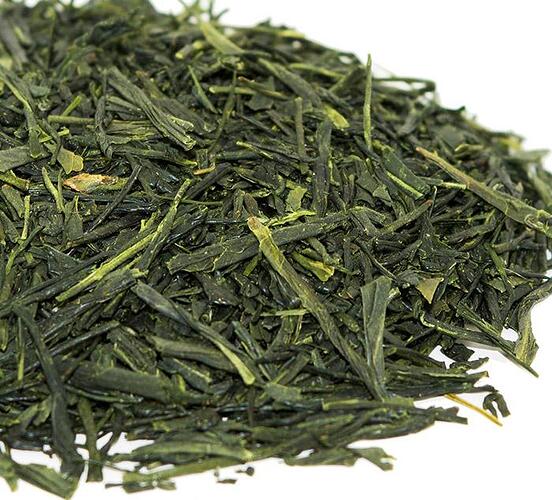I don’t know what sourcing magic this company has arranged, but somehow they’re able to provide a fairly high quality tea like this at a very reasonable cost-per-cup. It’s not the best I’ve tasted, but you can’t beat the price, especially with Subscribe & Save (an option few other tea companies offer). It’s brothy, vegetal, umami, and lightly sweet as well. Often gyokuro and high grade senchas are recommended to be steeped at fairly low temperatures (140-160) and for very short periods of time, with multiple steepings. I’ve covered elsewhere why I don’t tend to take that approach, and this one brews well at 160-175F with a single longer steeping of 3-4 minutes (depending on temperature and desired result), which tends to be my preference.
Some may quibble about the quality or even type of tea, is this “real” gyokuro, or whatever. Frankly I don’t care that much, the experience is reasonably similar to other more affordable gyokuro’s I’ve had (though certainly not as good as the finest - and also much more expensive - offerings), and it is delicious and organic to boot. It is better than many “sencha” teas that are marketed, and still affordable enough to be a near-daily cup for me, which I appreciate.
Ultimately I care less about labeling and more about experience, and this is a worthwhile one. That said, if you want the really rich, expensive, deep green stuff (which is also highly seasonal), I recommend Rishi Tea, or Red Blossom Tea in San Francisco, both of which have some amazing small batch releases, often available for a relatively short time after harvest due to demand.
Seasonality and Freshness
One thing I will say about it is that gyokuro, like many teas, is a spring harvest, and since its aim is to capture the really fresh, sweet, and vegetal qualities of high chlorophyll leaves, it is - I think - more susceptible to oxidization over time in storage than many other teas (although I’ve since learned that there is, in fact, some benefit to “aging” some of these teas a bit, i.e. a few months I think). Since The Tea Spot does ship their gyokuro year-round, the quality and experience will vary depending on time of year. And it’s also quite possible they’re able to offer it this affordably because they’re essentially selling older lots that aren’t as “bright”, sweet, and rich as when fresh, or from later harvests that have less of that rich, sweet+umami quality, and thus less commanding less of a high price. This is entirely speculation on my part, but it’s a fact that most high-end gyokuro sellers (like the aforementioned Rishi and Red Blossom) only purchase enough to sell through closer to the time of harvest and processing, or so it seems. Tea Spot definitely does not do that, it’s just unclear how they’re going about it.
There is some additional, possibly relevant info on the O-Cha site. Even though it is discussing the difference between Sincha and Sencha, I believe the details about storage, etc. also apply to Gyokuro.
Organic Tea?
I try to buy organic food and drink whenever possible, including tea. Many people perhaps rightfully argue that getting organic certification is an option only for a minority of tea growers, and many non-certified growers may have practices that meet or even exceed organic certified practices. I know this is true, but it involves a large degree of trust in the source and distributor. When that trust is established over time, as it is for me with Rishi, or with Song Tea and Red Blossom here in San Francisco, then I am more willing to venture outside the organic realm, especially for more unique, rare, or high quality teas. But if I can find an organic option at a good price and the cup is enjoyable – as is the case with this gyokuro – then I appreciate the option to go organic and will rely on that as much as possible.
